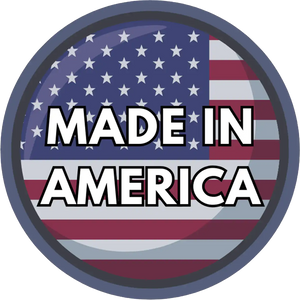When parents begin exploring education options for their children, one of the most common questions that comes up is: Does Montessori count as a school?
It’s a fair question—especially since Montessori classrooms often look and feel quite different from the traditional school setup many of us grew up with.
Instead of rows of desks and a teacher leading from the front, Montessori environments are designed to encourage movement, independence, and exploration.
But at its core, Montessori is a school. It may not always resemble the conventional model, but it’s built on a well-researched philosophy of education that has been around for over a century.
Understanding what sets Montessori apart can help parents make confident decisions about their child’s learning environment.
What Exactly Is a Montessori School?
A Montessori school is an educational environment inspired by the work of Dr. Maria Montessori, an Italian physician and educator who developed a child-centered method of learning in the early 1900s.
Her approach focused on the idea that children learn best when they’re given freedom within structure, opportunities to make choices, and hands-on tools designed for discovery.
In a Montessori classroom, you’ll typically find:
-
Mixed-age groups where younger children learn from older peers, and older children strengthen their understanding by mentoring.
-
Hands-on materials such as wooden number rods, moveable alphabets, and practical life tools that encourage independence.
-
Child-led learning where students choose activities based on their interests, guided by teachers who act as facilitators rather than lecturers.
-
An emphasis on independence—children are encouraged to do things for themselves, from pouring their own water to putting away materials after use.
These elements make Montessori a school in the truest sense—one focused not just on academics, but also on the development of the whole child: intellectually, socially, emotionally, and practically.
How Montessori Differs From Traditional Schools
If Montessori counts as a school, why does it look so different? The answer lies in its priorities.
While traditional schools often emphasize standardized testing, memorization, and teacher-led instruction, Montessori schools value exploration, critical thinking, and self-motivation.
Here are a few key differences:
Structure vs. Freedom
Traditional classrooms often follow a rigid schedule, while Montessori schools offer more flexibility, allowing children to spend extended time on tasks they’re deeply engaged in.
Teacher Role
In traditional schools, the teacher is the central figure of authority and instruction. In Montessori, teachers act more like guides—observing, supporting, and stepping in when needed, but not dictating every step.
Learning Pace
Montessori schools honor individual pacing. Some children might spend weeks mastering a math concept, while others move on quickly—both are equally supported.
Environment
Montessori classrooms are intentionally designed for independence. Furniture, shelves, and learning tools are child-sized, giving children the confidence to take charge of their environment.
This last point ties directly to something we’re passionate about at Dannico Woodworks—creating furniture that empowers children to explore and grow safely.
Accreditation and Recognition: Is Montessori Official?
Yes—Montessori schools are recognized educational institutions. In fact, Montessori programs exist around the world and span across age groups, from toddlers to high school students.
However, because “Montessori” isn’t trademarked, any school can technically use the name.
That’s why parents are encouraged to look for schools accredited by organizations such as the American Montessori Society (AMS) or the Association Montessori Internationale (AMI).
Accreditation ensures that a school is adhering to authentic Montessori principles and practices.
FAQs
Do Montessori schools follow a curriculum?
Yes. Montessori schools have structured curricula that cover math, language, science, geography, and practical life skills. The difference is that the curriculum is taught through hands-on materials and exploration, rather than rote memorization.
Are Montessori teachers certified?
Authentic Montessori teachers undergo specialized training programs to understand child development, observe students effectively, and use Montessori materials in the classroom.
Do Montessori schools prepare children for “real” school later?
Absolutely. Montessori fosters skills like focus, independence, problem-solving, and collaboration—all essential for success in any setting.
Many parents find that children who transition from Montessori to traditional schools adapt well because they’ve developed confidence in their ability to learn.
Is Montessori only for preschool?
No. While Montessori preschools are most common, Montessori programs exist at the elementary, middle, and even high school levels.
Is Montessori right for every child?
Montessori can benefit most children, but parents should consider their child’s personality and learning style.
Some children thrive in self-directed environments, while others may prefer more structure. Visiting a classroom is often the best way to get a feel for fit.
Why This Matters for Parents Today
As parents, we’re all looking for schools that do more than just teach academics. We want environments where our children feel supported, encouraged, and inspired.
Montessori is more than a school model—it’s a philosophy that respects the child as a capable, curious individual.
And the environment matters too. A Montessori classroom isn’t just about the lessons—it’s about the setup.
When everything is child-sized, organized, and accessible, children feel empowered to take charge of their learning.
That’s why at Dannico Woodworks, we create thoughtfully designed children’s furniture that mirrors this same philosophy.
From learning towers to shelves that encourage independence, our goal is to bring elements of Montessori into your home.
Conclusion
So, does Montessori count as a school? Without question. It may not always look like the classrooms we’re used to, but Montessori schools provide rich, meaningful education rooted in independence, discovery, and respect for each child’s unique journey.
As more parents explore alternatives to traditional schooling, Montessori stands out as an option that blends structure with freedom, academics with real-world skills, and learning with joy.
That brings us to the final, and perhaps most important, question: What kind of learning environment do you want to create for your child—and how can you support their independence at home as well as at school?
At Dannico Woodworks, we’re here to help parents bring that vision to life.

